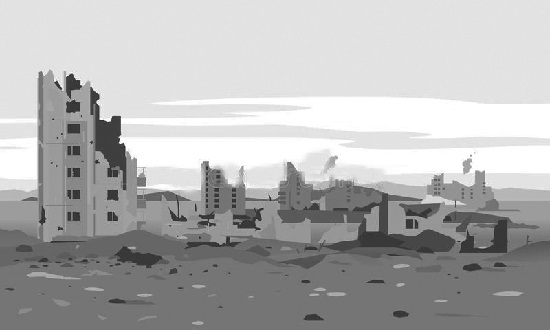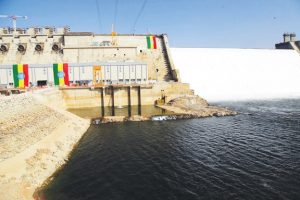
The building of public facilities in developing countries takes such a long time, a lot of resources as well as knowledge. But the destruction of these facilities is going to have even much more side effects.
The opening of Menelik II School in Addis Ababa in 1908 was marked the beginning of modern education in Ethiopia. Because there was no government or public schools or education system in Ethiopia prior to 1908. In fact, there was an attempt to provide modem education through missionaries (Catholic missionary, Jesuits) during the 16th century A.D.
According to Bahiru Zawdie, several factors such as the post-Adwa situation, first the recognition of Ethiopian superiority in the battle of Adwa increase European interest to create strong relations with Ethiopia, the introduction of modern institution, and the powerful expression of the educated Ethiopians to the problem of backwardness necessitated introducing modem education in the country.
After a century, currently more than 27 million students are attending schools, over 700 thousand teachers are teaching and there are more than 47 thousand schools across the nation. In order to reach this level, the country has passed through various ups and downs. Yet Much remains to be done to improve the quality of the education sectors.
Recently, the education sectors have challenged with the pandemic spread of COVID-19 and forced the school to be closed. Schools and universities has been closed for eight months following the confirmation of the first case on March 13, 2020. This put 27 million primary and secondary school students, and around a million tertiary students, out of learning.
Both the government, parents, stakeholders and so on have been made maximum efforts to carry on learning remotely via TV, radio and online platforms. Approximately 5.2 million primary and secondary school children have been reached throughout the country via distance learning programs led by the government of Ethiopia with the support of stakeholders. This has been challenging situation for partners. Because these mechanisms of teaching are obviously skewed in the favor of urban and mostly economically privileged students. There are also many primary and secondary school children in Ethiopia with special educational needs, who may not benefit equally from remote learning.
Although, the disease has affected the life of the people, killed and disrupted normal life activities including education, schools in Ethiopia are reopening after various complications. In September 2020, the Government lifted the national state of emergency, which was in place since March of the same year, relaxing some preventive measures initially instituted to curb the spread, and paving the way to plan for safe school reopening.
The closure of the school has forced learners to have minimum contact with their peers. This defiantly affect not only their school performance but also their psychological wellbeing. As a result, many parents have been echoing their voices to the government to do everything possible to protect their children and reopen the school.
State Minister of Health Seharla Abdullahi said that reopening of schools, the government has provided masks, sanitizers and hand washing facilities in all public schools. There was also ongoing discussion on how to safely reopen higher education institutions as well. The supervision and controlling schools has covered also under the discussion.
Ministry of Education State Minister Million Mathiwos told local media that the schools reopened by limiting the number of students in a classroom and strictly adhering to COVID-19 prevention guidelines set by Ministry of Health. Hence, the old practice of placing up to 70 students in some classroom has changed in to limited number with shifts. However, the schools are reopened and limited contacts has been placed.
Along with the challenge of quality of education, and COVID-19 cases, the terrorist TPLF group has declared war which kills, displaced, and made human rights abuses in the Amhara and Afar regions. The ongoing war and provocation by the TPLF affects both students and the education sector.
Ethiopian Ministry of Education, Minster Engineer Getahun Mekuria (Ph.D.) said that the aggression that has been made by the terrorist TPLF group in the Amhara and Afar regions seriously affects the education sector. Because over 7,000 schools have been partially and fully destroyed by terrorist TPLF so far; more than 1.4 million students have been made out of school as a result. They ran-downed schools and changed most school compounds to military bunkers.
About 6,000 schools in Tigray have been completely destroyed following Ethiopian National Defense Force ‘s withdrawal from the area. Furthermore, more than a thousand and 455 schools including college campuses have been disrupted and looted as of TPLF’s expansion to Amhara and Afar states, he explained.
According to Engineer Getahun (Ph.D), in the Afar region, 455 schools of 88,000 students were destroyed by the TPLF terrorist group forces. Similarly, 140 schools, two teacher training centers and colleges in Amhara region have been completely and partially destroyed. Apart from destroying schools, the terrorist TPLF group recruiting child soldiers who are expected to attend schools. These evil activities will definitely affect the current and future life of children.
Legal affairs expert with Ministry of Women, Children and Youth Dawit Mengistu said the Convention on the Rights of the Child, adopted by the United Nations General Assembly in 2000, stipulates that children under the age of 16 shall not be used in any military service. Nevertheless, the TPLF terrorist group, against the Convention, is committing crimes by recruiting child solders for war. This affects the future generations.
“The children in Tigray have been repudiating access to education by the TPLF terrorist group. This really affects the psychological wellbeing and development of the children. Besides, recruiting child soldiers, the terrorist group was committing serious crimes by giving drugs to children in the battlefield,” he points out. He therefore called on international organizations and the media to condemn the terrorist TPLF group rather than remain silent.
Pediatrics and Care Specialist Dr. Henok Zewde told local media that keeping children separate from parents and schools to send them into battlefield by the TPLF terrorist group could lead to physical and psychological problems.
“isolating children from school and normal life in the community expose them to social stigma, post-traumatic stress disorder, hatred, motivation to attack others, and so on. Therefore, the TPLF terrorist group that take the children to the battlefield should be held accountable for war crimes,” he explained.
It is true that, education is the best weapon against poverty, backwardness, conflict and pave the way to development. Nonetheless, disrupting and destroying children’s education is the most damaging effects of war. Military use of schools can also disrupt children’s education and cause destruction of school infrastructure. In an environment of violence and fear, school attendance and education quality can decline, and schools might even shut down. This is what happened in the Amhara and Afar region by the TPLF terrorist group forces.
uring the time of the TPLF terrorist group the quality of education has declined in Ethiopia. Currently, the group snatching students school opportunity by waging war against the nation. The group transformed from destroying quality of educations into schools. Therefore, separating children from school and life need careful analyses and response by realizing the negative consequence.
BY EPHREM ANDRAGCHEW
THE ETHIOPIAN HERALD 12 SEPTEMBER 2021





